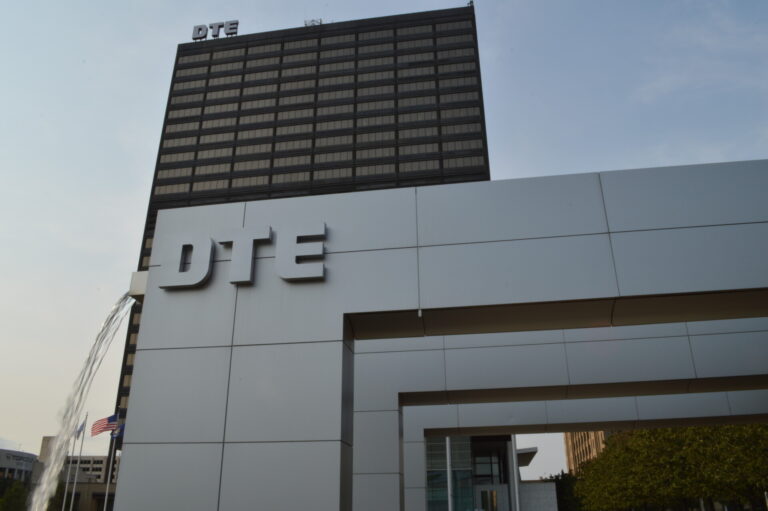Xcel-funded group urges Minnesota regulators to increase profits for Xcel

A group that advocates for Xcel Energy’s shareholder interests, and which is funded by the utility, is behind a campaign urging Minnesota regulators to reconsider a recent rate case decision and further increase Xcel Energy customers’ rates.
Immediately after the Minnesota Public Utilities Commission cemented Xcel’s 9.6% electric rate increase on June 1, Xcel said it would formally request that the PUC reconsider the decision. Soon after, letters and emails began rolling into the regulators. The submissions, which urge the PUC to further raise customers’ rates in order to line shareholders’ pockets, mirror text prepared by Minnesota Utility Investors (MUI) – a self-described “grassroots association” that advocates for people who own stock in Minnesota utilities. Though they do not mention MUI, one submission appears to have been saved by its writer as “MUI Letter”.
“As a shareholder of Xcel Energy, their dividend is important to our livelihood,” a sample letter included in an MUI “action alert” reads. Variations of this message appear throughout the recent submissions. Paradoxically, many of those calling for higher rates also identify themselves as Xcel ratepayers – the group that would be burdened by higher bills if the PUC heeded their call. Under the approved rate increase, Xcel customers will pay $306 million more over three years. The utility originally proposed adding $677 million onto rates, and later pared that request down to $440 million.
The MUI campaign takes specific aim at Xcel’s return on equity (ROE), a key driver of rates and utility profits. The ROE determines the amount of profit margin that Xcel is allowed to charge customers on certain infrastructure expenses, putting shareholders’ interests in direct conflict with customers’ interests. The PUC set Xcel’s ROE at 9.25%, which means Xcel is allowed to pass the full cost of qualifying projects on to customers, then add up to 9.25% to the tab. The 9.25% ROE is an increase from the previously set 9.06%. Xcel had sought an even bigger ROE of 10.2%, which would’ve cost customers millions more.
While an Xcel spokesperson would not say whether the utility coordinated with MUI on the campaign when asked by the Energy and Policy Institute (EPI), MUI President Annette Henkel confirmed she had been in touch with Xcel employees about the rate case decision.
“I regularly communicate with employees of investor-owned utilities about a variety of issues that directly impact the investments our members have made. I did inquire about Xcel Energy’s plans for reconsideration and shared the concerns of our members about the PUC decisions,” Henkel wrote in an email responding to an EPI inquiry. “However, none of our Associate members (including Xcel Energy) direct the activities of MUI; our activities are overseen by a 7 member board of individual shareholders.”
Docket filings show MUI receives annual funding from the utility. Xcel has indicated that it pays $78,000 to $79,000 in yearly membership dues to MUI, which represents more than one-quarter of the total dues MUI reported collecting in its latest available public tax filing. MUI did not provide its most up-to-date dues totals in its response to EPI.
Documents posted to MUI’s website show Xcel communicates with shareholders through the organization, in writing and at events. Xcel CEO Bob Frenzel was a featured speaker at MUI’s annual luncheon last year.
Xcel shareholder group spreading misleading information
Xcel has delivered its shareholders consistent dividends for nearly two decades. MUI’s communications to its members do not explain in detail how the PUC’s recent decision will impact future dividends. The MUI “action alert” urging Xcel shareholders to contact the PUC includes misleading information on regulators’ recent decision and Xcel’s outlook.
The group tells its members that the approved return on equity of 9.25% is “the greatest concern to shareholders” and “now one of the lowest ROE for a utility in the country.” But that assertion sidesteps important context that was presented as part of the rate case proceeding.
Testimony from a group of Xcel’s large industrial customers highlighted that the national average for authorized ROE was 9.47% in the first six months of 2022, leading up to rate case filings. While the authorized 9.25% is below the national average for that time period, the large industrials group noted, Xcel’s requested 10.2% is 73 basis points higher than the national average. The authorized 9.25% is closer to the national average than Xcel’s request was.
Multiple consumer advocacy groups that intervened in the rate case pushed for a lower ROE. They argued that increasing the metric would mainly benefit Xcel’s shareholders, not customers. As the large industrials group testified, Minnesota law does not “require the Commission to provide investors with above-average returns. Instead, utilities are simply allowed an opportunity to earn a return commensurate with risk,” adding that Xcel does an above-average job mitigating its risk.
Xcel routinely celebrates its tradition of providing plump shareholder returns. The company reported $1.74 billion in profits last year, and at its 2023 annual shareholder meeting in May, Frenzel noted that Xcel had met or exceeded its earnings guidance for 18 consecutive years. Frenzel also highlighted that Xcel had raised shareholders’ annual dividend payment for the 19th year in a row and said Xcel’s total shareholder return “significantly exceeded our peer group’s average.”
Despite praising its own profitability in 2022, Xcel said the PUC’s decision to rein in its rate increase would “limit our ability to continue to lead the clean energy transition.”
Xcel blamed the rate case outcome when it withdrew plans for an expansive EV charger buildout days after the decision. The Minnesota Department of Commerce, a state agency whose role is protecting consumers’ interests, said in a recent PUC filing that it was “troubled” by Xcel’s about-face.
“Specifically, Xcel appears to be threatening to withdraw its previous commitments to the energy transition unless the Commission capitulates to a likely reconsideration request in Xcel’s [rate case]. The Commission should ignore these threats,” the Department’s filing said. “The Commission exercised its judgment and expertise in determining the many discrete issues in Xcel’s [rate case]. The fact that Xcel is displeased at the results of the Commission’s deliberations should not impact the Commission’s otherwise sound decisions.”
Since the decision, Xcel has also abruptly scrapped a $9 million “resilience hub” project that would have added rooftop solar and battery storage to several Minneapolis community centers – part of a commitment Xcel made after George Floyd’s murder to better serve communities of color in its hometown. That news surprised city officials, but Xcel has insisted it was unrelated to the PUC proceeding and instead blamed inflation and supply chain issues.
Xcel sought to charge customers for shareholder advocacy
Though Minnesota law allows utilities to charge customers only for expenses that benefit them, Xcel attempted to charge them for the cost of its MUI dues – until Minnesota Attorney General Keith Ellison’s office challenged its bid to do so. Xcel ultimately withdrew the request, acknowledging that findings in a separate regulatory proceeding “concluded that MUI’s activities focus on empowering shareholders rather than customers.”
MUI makes no secret of whose interests it supports, clearly advertising on its website that it “represents the interests of individuals who own shares in energy utility companies operating in Minnesota.” The PUC has historically disallowed recovery of MUI dues when disputed, usually by consumer advocates like the Attorney General’s Office. A June 2020 filing by a judge reviewing a rate increase proposal from another Minnesota utility, Great Plains Natural Gas, blasted that utility’s attempt to saddle customers with the cost of MUI dues.
“A review of MUI’s activities, purpose, and mission establishes that the organization is primarily focused on advancing the interests of utility shareholders in the regulatory policy-making and law-making process,” the judge wrote. “As a result, it does not provide benefits to ratepayers and, thus, should not be included in the calculation of the revenue requirement.”
Xcel pointed to that filing – and to another recent disallowance – when it withdrew its dues request in the most recent rate case.
“The Company recognizes that in a recent rate case concerning Great Plains Natural Gas, the Administrative Law Judge concluded that MUI’s activities focus on empowering shareholders rather than customers, and that the Administrative Law Judge in the most recent Minnesota Power rate case reached a similar conclusion,” Xcel wrote. “Accordingly, the Company withdraws its request for MUI dues.”
Xcel also tried and failed to recover the cost of MUI dues in its Minnesota gas rate case last year.
Next steps for regulators
When they announced the rate case decision in early June, PUC commissioners echoed an increasingly common refrain: utility customers’ pocketbooks are at the forefront of their decision-making. Commissioners have increasingly acknowledged the struggles of cash-strapped customers, a problem that has escalated in recent years amid broader economic upheaval. The Just Solar Coalition, which advocates for low-income customers, emerged as a prominent new voice in the Xcel proceeding.
“This Commission is laser focused on affordability and reliability,” PUC Chair Katie Sieben said in a statement announcing the June decision. “We scrutinize every dollar to ensure Minnesotans only pay what is necessary.”
Regulators also denied Xcel’s request to charge customers for millions of dollars in executive compensation expenses that they called “excessive.” PUC Chair Katie Sieben led a successful effort to cap customer expenses for Xcel’s ten highest-paid executives at $150,000 per year, in alignment with what Minnesota’s governor earns.
Xcel can officially request reconsideration of the approved rate increase after the PUC files documents outlining its order, expected later in July. The Commission seldom grants such requests, and if it rejects this one, Xcel could take its arguments to the Minnesota Court of Appeals.
It’s unclear what impact, if any, the MUI letters and emails have on the process. They were submitted after the public comment period for the rate case closed. During the months the PUC had the case open, when it was accepting comments, hundreds of people wrote in – largely to express concern about rising electric bills. The PUC also held several public hearings.
Photo credit: Minnesota Utility Investors Facebook Page



